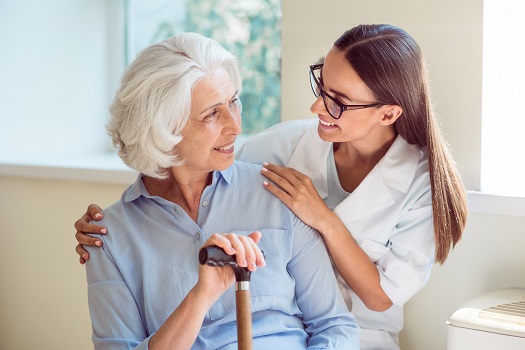Preparing your home for a home caregiver to care for a senior loved one involves making several important adjustments to ensure the environment is both comfortable and safe. Here are seven tips to help you get your home ready:

Content
1. Assess and Remove Hazards
Start by conducting a thorough assessment of your home to identify any potential hazards. Remove clutter from walkways, secure loose rugs, and ensure all cords and cables are tucked away to prevent tripping. Consider installing grab bars in the bathroom and other areas where extra support might be needed. Non-slip mats in the bathroom and shower can also significantly reduce the risk of falls.
2. Create a Caregiver-Friendly Space
Designate a specific area in your home where the caregiver can rest, complete paperwork, and store their personal items. Providing a comfortable chair and a small desk can help the caregiver stay organized and feel appreciated. If the caregiver will be staying overnight, ensure there is a comfortable place for them to sleep.
3. Organize Important Documents
Keep all essential documents, such as medical records, emergency contact information, and a list of medications, in a central, easily accessible location. This will help the caregiver quickly find the information they need in case of an emergency. Additionally, having a folder with care instructions and any specific routines or preferences can be very helpful for the caregiver.
4. Ensure Accessibility
Make sure that all necessary areas of the home are easily accessible. This includes widening doorways if needed, ensuring there are no steps or providing ramps where necessary, and making sure that commonly used items are within easy reach. For seniors with mobility issues, consider rearranging furniture to create more open space for movement.
5. Set Up a Communication System
Effective communication is key to successful caregiving. Set up a system that allows easy and quick communication between the caregiver, the senior, and family members. This could be as simple as having a list of important phone numbers posted in a visible place, or using mobile apps that allow for instant messaging and updates. Regular check-ins and a communication log can help keep everyone informed about the senior’s condition and care.
6. Prepare a Comfortable Living Environment
A comfortable living environment can greatly enhance the well-being of your senior loved one. Ensure that their living space is clean, well-ventilated, and adequately lit. Adjust the temperature to a comfortable level and consider adding personal touches like family photos, favorite books, and cozy blankets. These small touches can make a big difference in making the senior feel at home.
7. Equip with Essential Supplies
Stock up on essential supplies such as medications, personal hygiene products, and any medical equipment that might be needed. Ensure that there is an ample supply of clean bedding, towels, and other daily necessities. Having these items readily available will help the caregiver provide the best possible care without unnecessary interruptions.
Conclusion
In conclusion, preparing your home for a home caregiver involves creating a safe, accessible, and comfortable environment for both the senior and the caregiver. By following these seven tips, you can ensure that your home is well-equipped to support the needs of your loved one and facilitate effective caregiving. This preparation will help the caregiver perform their duties more efficiently and provide your loved one with the best possible care, enhancing their quality of life and giving you peace of mind.

Alina Smith is a health blog author with an interest in the intersection of wellness and mental health. She’s worked as a writer, editor, and communications specialist for various healthcare organizations. Alina has also led projects to improve access to care for underserved populations in both rural and urban settings.












